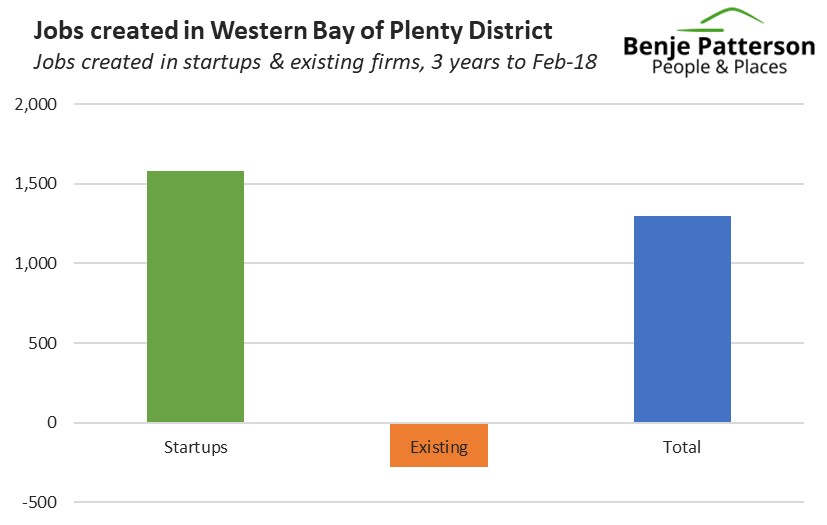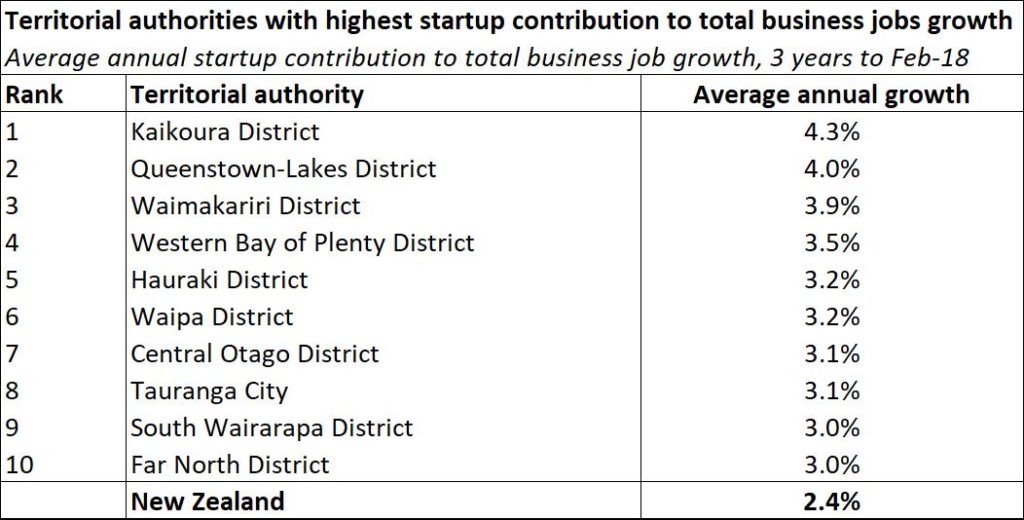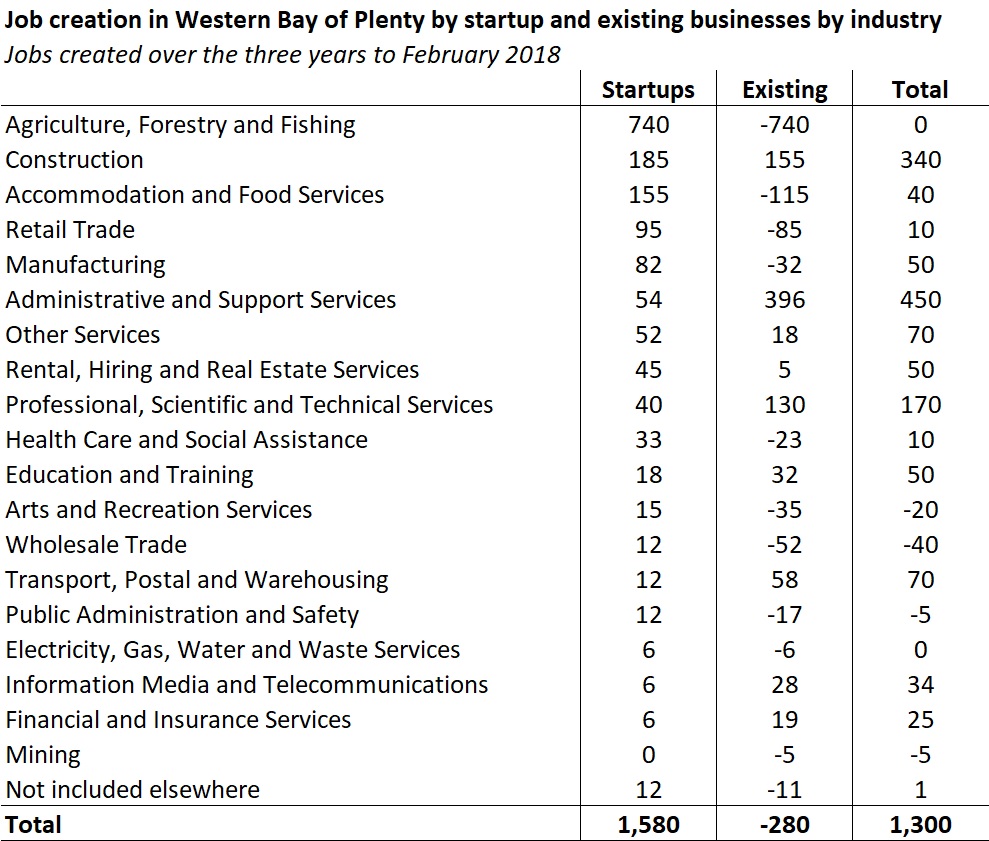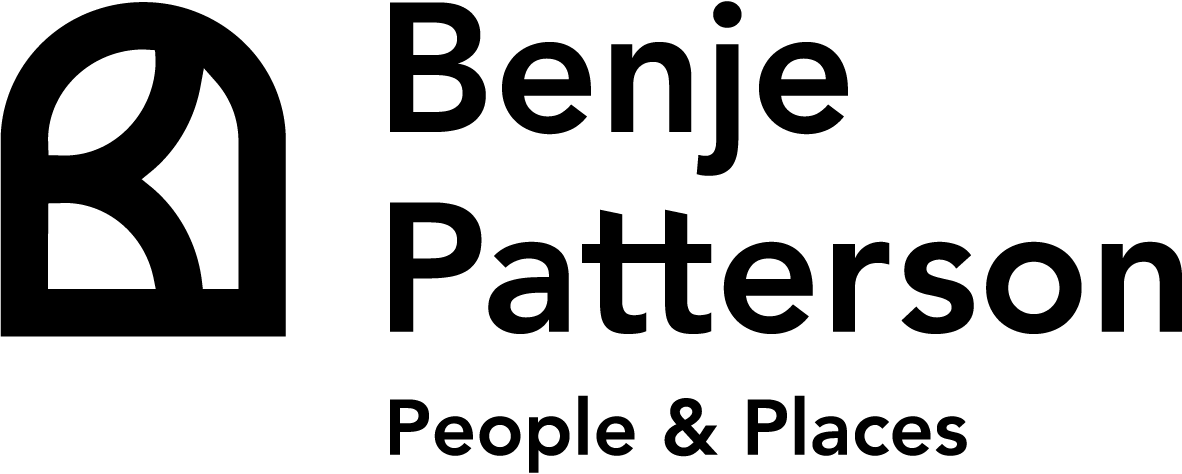Questions regarding the future of work have recently focused my attention on understanding the sources of job creation in regional New Zealand. My analysis has thrown up some surprises: including identifying Western Bay of Plenty as one of New Zealand’s unheralded meccas for startups. Read on to find out what has driven Western Bay of Plenty’s startup success, and what other parts of the country are startup hubs.
Startups are surprisingly a provincial thing
Over the three years to 2018, employment within businesses in Western Bay of Plenty District expanded by 1,300 jobs, at an average rate of 2.9%pa. A nice result, but the real story is found by scratching beneath the headline and looking at the relative contributions of new and existing businesses. This analysis shows that startups created 1,580 jobs, while existing enterprises shed 280 workers.

Had existing enterprises not shed workers, the jobs created by startups would have pushed up business employment in Western Bay of Plenty by an average of 3.5%pa over the three-year period. This rate of startup job creation ranked Western Bay of Plenty in fourth place in New Zealand out of 66 territorial authorities (excluding Chatham Islands).

What’s surprising about the other key areas for startups in New Zealand is that they were generally in the provinces – not the place one would normally identify as being hives of entrepreneurial pursuit.
The average startup is not a tech firm
My first thought was that perhaps provincial startup jobs were created by entrepreneurial Auckland exiles who had moved to the provinces in search of more affordable housing. A popular assertion floating around is that these people create professional service and technology-orientated start-ups where fast internet and inspiring lifestyle is more important than location to market.
But looking at which industries had been the key drivers of startup job creation in Western Bay of Plenty put to bed this theory as being the primary determinant of what has happened.
I found that half of Western Bay of Plenty startup jobs were in the primary sector – likely to have been tied in with boomtimes for kiwifruit. The next biggest contributor was construction, as an expanding population pushed up housing demand. The demands from this growing population, alongside rising tourism activity, were also key contributors to flourishing job creation among startup hospitality and retail businesses.

It isn’t until further down the list that you get to the administrative, professional service, and technology type businesses that those moving to the provinces from Auckland are said to begin.
But the importance of these businesses’ contribution to wages, wellbeing, and productivity of the local economy should still not be discounted.
An analysis of taxation records shows that the typical newly created job in professional, technical, financial and insurance services pays between $65,000-75,000, while the average for continued employment down the track in these sectors is $84,000-$99,000.
By comparison, newly created jobs in the primary sector and construction pay between $44,000-$55,000, while new hospitality and retail jobs pay between $25,000-$32,000. Continued employment in these sectors is also not as lucrative, with average wages ranging from $52,000-$62,000 and $34,000-$42,000 respectively.
Economic development practitioners need clear evidence of where to intervene
This analysis has shown me that startups in New Zealand are not always where you expect them to be, and they are not always in the industries that typically garner the headlines.
In a previous blog, I also showed that economic development practitioners must be careful to balance their focus between fostering startups and building up the resilience of existing enterprises.
My discussions with economic development practitioners have highlighted that there is a strong appetite to learn more about how jobs are created in local economies.
In response to this demand, I will be producing research reports that analyse the contributions of new and existing businesses to jobs growth at a territorial authority level of detail. The reports will also focus on how these twin avenues of jobs creation differ between industries and what that means for wages and the material wellbeing of local residents. These trends matter for attracting people to your local area. After all, economic development is about people and making a place great to live, work and do business.
Reports will cover recent data to 2019 and can also be paired with a workshop of the findings. Please contact me if your organisation would like to enquire about getting a report for your area. The reports will be delivered during November.
